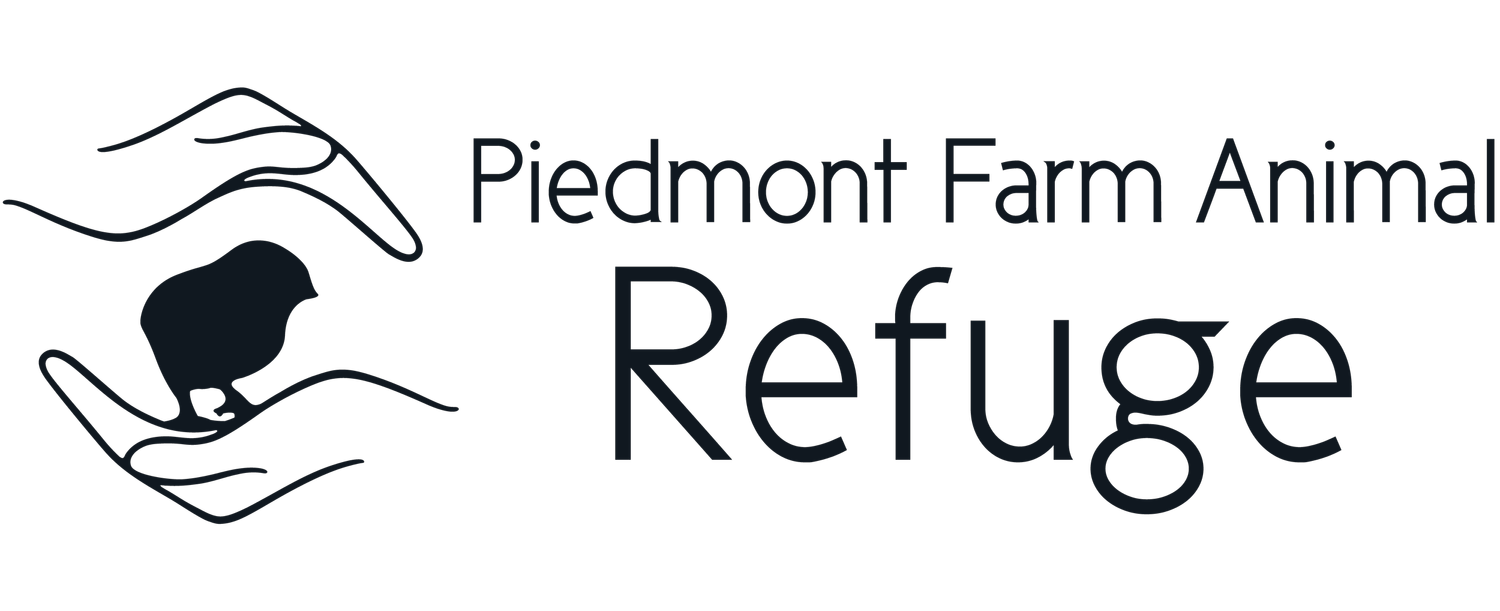Factory Farming in North Carolina
By Ashish George for Piedmont Farm Animal Refuge
It’s easy to take for granted how well science has helped us to live longer, healthier lives. But progress has to be sustained, and science has to be applied ethically. A disturbing fact illustrates how breakthroughs can be mishandled: seventy percent of all antibiotics in contemporary America are sold for use in animals. North Carolina factory farms, which genetically modify animals and keep them in unsanitary conditions where they can barely move, rely on these antibiotics because the animals they are confining might not even make it to the age of slaughter without chemical assistance. Using antibiotics in this way poses a scary risk. Bacteria become resistant to antibiotics the more they are exposed to them. If factory farms keep pumping weakened animals with antibiotics, we could be back to worrying, as previous generations once did, that a wound or infection could lead to an amputation or premature death. A 2021 study from the Johns Hopkins Bloomberg School of Public Health warns that multidrug-resistant staph bacteria strains are being transmitted between pigs, farmworkers, the workers’ families, and nearby residents in rural eastern North Carolina.
The state’s small pig farms were largely displaced by huge operations that could hold thousands of animals in the late 1980s and early 1990s. In addition to the cruelty the move toward bigger farms has imposed on pigs, the costs imposed on people not involved in the industry but nonetheless caught up in its side effects—what economists call externalities—have been significant. North Carolina has 8.8 million pigs who produce 10 billion gallons of waste a year. Black, Latinx, and Indigenous populations tend to live near the pork production facilities, and poorly managed waste disposal harms their quality of life. For example, DC Mills Farms in Jones County, which produces pork for Smithfield Foods, spilled 1 million gallons of hog feces into a tributary of the Trent River in December 2021 after it had received notices that it was in violation of safety protocols from the Department of Environmental Quality. Meanwhile, in Duplin County, communities that are majority Black have to deal with hog farmers spraying waste that ends up on their clothes and other possessions. There is a correlation between air pollution from the hog farms and various medical problems, including higher blood pressure and childhood asthma. Unfortunately, public policy doesn’t acknowledge the magnitude of the crisis. North Carolina House Bill 467, the innocently named “Agriculture and Forestry Nuisance Remedies” bill, limits the compensation people can receive from reckless factory farms. Property damage is accepted as legitimate grounds for legal action. However, health consequences and loss of income are ruled out. It’s worth considering how long the factory farms deploying an army of powerful lobbyists would stay open if they were located near wealthy neighborhoods in Charlotte or the UNC campus in Chapel Hill instead of near historically marginalized groups without much money.
Farmers are victims of this system, too. In 2013, the Chinese firm WH Group, known at the time as Shuanghui Group, bought Smithfield for $4.72 billion. Serving a giant business means having to take on the expenses associated with land and equipment. While Smithfield remains an “independent subsidiary”, farmers don’t even own the hogs they raise according to the contracts they have to fulfill. The piglets they receive are just temporarily under their care until the time they are big enough to be slaughtered. Farmers get directions on everything from how to administer drugs to the animals to how to mow their lawns. Many take on second jobs because the pay isn’t enough to live on. Under these alienating working conditions, it’s no wonder suicide is worryingly high among farmers.
The domination of the poor by the rich, ongoing environmental racism, and breakneck expansion that puts profits over lives should lead us to reject factory farming. The North Carolina that is yet to be born—the North Carolina that respects all humans and animals—needs compassionate midwives in every passing generation. Breathing easy has never come without struggle, but it’s the inheritance due to every sentient being who calls this beautiful place home.
Resources:
Klein, E. (Host). Ezra Klein interviews Leah Garcés [Audio Podcast]. (2022, November 29). Retrieved from: https://www.nytimes.com/2022/11/29/opinion/transcript-ezra-klein-interviews-leah-garces.html
Scully, M. (2003). Dominion: The power of man, the suffering of animals, and the call to mercy. St. Martin’s Griffin.

